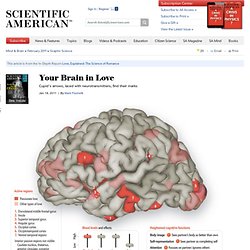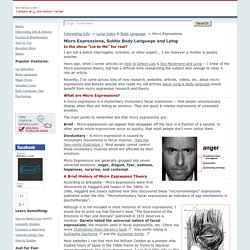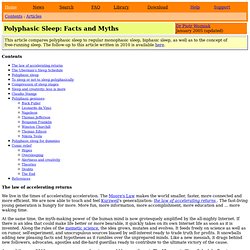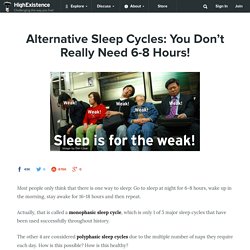

Neuropsychological Assessment, Diagnostics and Cognitive Rehabilitation Therapy. Cultural Studies. Your Brain in Love. Men and women can now thank a dozen brain regions for their romantic fervor.

Researchers have revealed the fonts of desire by comparing functional MRI studies of people who indicated they were experiencing passionate love, maternal love or unconditional love. Together, the regions release neurotransmitters and other chemicals in the brain and blood that prompt greater euphoric sensations such as attraction and pleasure. Conversely, psychiatrists might someday help individuals who become dangerously depressed after a heartbreak by adjusting those chemicals. Passion also heightens several cognitive functions, as the brain regions and chemicals surge. “It’s all about how that network interacts,” says Stephanie Ortigue, an assistant professor of psychology at Syracuse University, who led the study.
The Little Book of Procrastination Remedies. Micro Expressions - Research, Theory & Lying. Interesting Info -> Lying Index & Body Language -> Micro Expressions Is the show "Lie to Me" for real?

I am not a police interrogator, scientist, or other expert... I am however a mother & people watcher. Years ago, when I wrote articles on How to Detect Lies & Eye Movement and Lying -- I knew of the Micro expression theory, but had a difficult time researching the subject well enough to relay it into an article. Recently, I've come across tons of new research, websites, articles, videos, etc. about micro expressions and believe anyone who reads my old articles about lying & body language would benefit from micro expression research and theory. Polyphasic Sleep: Facts and Myths. Contents The law of accelerating returns We live in the times of accelerating acceleration.

The Moore's Law makes the world smaller, faster, more connected and more efficient. We are now able to touch and feel Kurzweil's generalization: the law of accelerating returns . The fast-living young generation is hungry for more. Alternate Sleep Cycles. Most people only think that there is one way to sleep: Go to sleep at night for 6-8 hours, wake up in the morning, stay awake for 16-18 hours and then repeat.

Actually, that is called a monophasic sleep cycle, which is only 1 of 5 major sleep cycles that have been used successfully throughout history. The other 4 are considered polyphasic sleep cycles due to the multiple number of naps they require each day. How is this possible? How is this healthy? Well the most important of every sleep cycle is the Stage 4 REM (Rapid Eye Movement) sleep, which has been shown to provide the benefits of sleep to the brain above all other stages of sleep. Somatic markers hypothesis. The somatic marker hypothesis (SMH) proposes a mechanism by which emotional processes can guide (or bias) behavior, particularly decision-making.[1][2] This hypothesis has been formulated by Antonio Damasio. Hypothesis[edit] When individuals make decisions, they must assess the incentive value of the choices available to them, using cognitive and emotional processes.
When the individuals face complex and conflicting choices, they may be unable to decide using only cognitive processes, which may become overloaded. The amygdala and VMPFC are essential components of this hypothesized mechanism and therefore damage to either structure will disrupt their proposed action in mediating the development and action of somatic markers. A major source of supporting evidence for this theory is provided by experiments using the Iowa gambling task.[5] Research background[edit] VMPFC patients also have difficulty expressing and experiencing appropriate emotions. Working mechanism[edit] Experiments[edit] Psych Central - Resource Directory. Focus on Brain Disorders. 5 Ways To Hack Your Brain Into Awesomeness.
Much of the brain is still mysterious to modern science, possibly because modern science itself is using brains to analyze it.

There are probably secrets the brain simply doesn't want us to know. Famous Psychology Experiments. The Top 10 Psychology Studies of 2010. The end of 2010 fast approaches, and I'm thrilled to have been asked by the editors of Psychology Today to write about the Top 10 psychology studies of the year. I've focused on studies that I personally feel stand out, not only as examples of great science, but even more importantly, as examples of how the science of psychology can improve our lives. Each study has a clear "take home" message, offering the reader an insight or a simple strategy they can use to reach their goals , strengthen their relationships, make better decisions, or become happier. If you extract the wisdom from these ten studies and apply them in your own life, 2011 just might be a very good year. 1) How to Break Bad Habits.
"Science and the taboo of psi" with Dean Radin. 10 Psychological States You've Never Heard Of — And When You Experienced Them. Social Psychology Network. How To Treat Others: 5 Lessons From an Unknown Author. Five Lessons About How To Treat People -- Author Unknown 1.

First Important Lesson - "Know The Cleaning Lady" During my second month of college, our professor gave us a pop quiz. The Ten Most Revealing Psych Experiments. Psychology is the study of the human mind and mental processes in relation to human behaviors - human nature.

Due to its subject matter, psychology is not considered a 'hard' science, even though psychologists do experiment and publish their findings in respected journals. 10 More Brilliant Social Psychology Studies. Psych Central - Resource Directory. Internet Mental Health. Psych Central - Resource Directory.